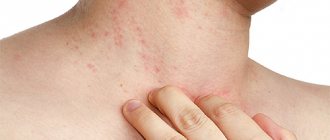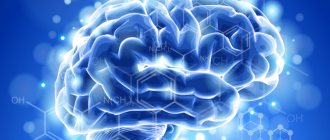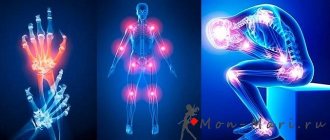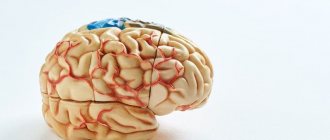Deviations in behavior associated with excessive activity and nervous excitability are often observed in young children and adolescents, most often in boys. This forces parents to seek help from pediatricians, family doctors, child psychologists and neurologists.
Experts often consider this condition to be pathological hyperactivity. However, if we are talking about mild manifestations of increased excitability, this is not always the result of a disorder of the central nervous system or the psycho-emotional sphere of the child.
Of course, if there are serious behavioral problems that are uncontrollable, occur frequently or are constantly present, if accompanied by aggressive manifestations, the child should be shown to a specialist.
Why does increased nervous excitability occur in a child, how does it manifest itself? What to do in this case, which specialist should I contact? Let's talk about this today:
Why does increased nervous excitability occur, what are its causes?
Experts name several reasons for this behavior. Let's briefly look at the main ones:
Very often, uncontrolled behavior becomes a consequence of the events that happen around us. For example, this may be a reaction to family problems. Very often, hidden depression in children is accompanied by nervous reactions even for minor reasons, aggression and increased mobility. Sensitive and suspicious children especially suffer.
From the first years of life, a child is bombarded with a huge amount of all kinds of information, changing daily. Various classes, clubs and sections, preparation for school and the school curriculum itself, as well as TV and computer - all this negatively affects the still unstable nervous system. As a result, increased excitability of the nervous system and increased physical activity.
Experts include other reasons: lack of sleep, lack of rest and parental attention, poor nutrition, spending a long time at the computer or TV. Here it is necessary to especially emphasize children’s passion for computer games.
How does increased nervous excitability manifest itself, what symptoms indicate it?
In general, almost all children are characterized by activity and restlessness. For many, this is an individual character trait. Therefore, you should not confuse an ordinary active baby with a child suffering from a nervous disorder.
For example, children can be noisy and sometimes unruly when they spend time with other children. However, when they need to concentrate, for example during school hours, they behave quite adequately and study diligently. In this case, you don’t have to worry too much.
But if even during the learning process the child is inattentive, not collected, not assiduous, not restrained, falls behind in school subjects, if he regularly conflicts with friends and teachers, you need to pay attention to this and show him to a neurologist.
Children with increased excitability often complain of headaches. Parents should be especially alert to sleep disorders and insomnia. These phenomena very often indicate a syndrome of increased excitability that requires medical correction.
How is increased nervous excitability corrected, what treatment is effective?
If serious problems with the nervous system are observed, the child should be shown to a neurologist. To determine the cause of excessive activity and increased nervous excitability, the doctor will prescribe an examination.
If certain pathological disorders are identified, he will prescribe the necessary drug treatment, most likely they will be recommended positive psychotherapy, and he will also give appropriate recommendations for behavior correction.
It must be remembered that it is unacceptable to independently treat a child with sedatives, give antidepressants, tranquilizers or sleeping pills. If necessary, the doctor will prescribe them individually.
Taking into account the age of the child, the established diagnosis, and the severity of the disorder, the following medications are usually prescribed (in short courses with breaks):
Sedatives - Valocordin, Barboval. Sedative homeopathic - Cardioica, Calm. Metabolic - Glycine. Cardiological - Tricardin. Nootropics – Piracetam.
It is very important to identify and eliminate the diagnosed syndrome of increased nervous excitability at an early age. Otherwise, the situation may get worse. With age, these children may develop attention deficit hyperactivity disorder. You can read more about this syndrome on the website.
When correcting nervous excitability that is not associated with pathology, the doctor may prescribe herbal preparations that have a mild, gentle effect on the child’s body.
Usually sedative natural remedies are prescribed: Novo-Passit and Persen (the instructions for use of each drug before use must be studied personally from the official annotation included in the package!). Products based on soothing medicinal plants are also suitable.
:
— Valerian (drops, infusion, tablets, tea). Preparations from this plant, both isolated treatments and in combination with other drugs, are widely used to correct nervous disorders. The plant helps reduce the excitability of the central nervous system, eliminates sleep disorders, and treats insomnia.
- Motherwort. Drugs based on it are often used to treat children and adolescents. Moreover, the sedative (calming) effect of motherwort is an order of magnitude stronger than the effect of valerian.
Pharmaceutical camomile . This mild sedative is usually taken as a tea or infusion. With the help of the plant, sleep disorders are treated, used for diseases of the gastrointestinal tract, etc.
Moreover, chamomile products are not only taken orally, but are also used to prepare soothing baths.
To conclude our conversation, we note that attentive parents always notice changes in their child’s behavior. If you notice the first unpleasant symptoms of increased excitability, take simple measures:
Adjust your daily routine, make sure your child sleeps at least 8 hours. Don't put too much stress on him, give him enough time to rest.
Try to spend more time together, play, take walks in the fresh air. Do not allow sitting for a long time at the computer or TV. Well, if necessary, contact specialists in a timely manner.
Increased nervous excitability is a condition of the body and central nervous system that occurs in a large number of people against the background of stress, conflicts and fatigue. Diagnosis and treatment of this disorder is carried out by a neurologist. Sometimes they resort to the help of a psychologist. The prognosis of the disease is favorable. When the first symptoms of this disease appear, you should contact a medical facility for help from a specialist.
- Show all
Causes of increased nervous excitability
If minor everyday problems cause a violent reaction, everything irritates, a person becomes aggressive and uncollected, then these symptoms signal that you should immediately pay attention to the state of the nervous system.
Excessive excitability of the nervous system is observed in 20% of the population. This figure worries doctors, since the number of people suffering from nervous disorders is growing rapidly from year to year. This is not surprising, because modern life is filled with stress, especially in large cities: emotional overload at work, lack of sleep, crowds of people on public transport, traffic jams, constant lack of time, streams of negative information that are splashed out on viewers by television channels, long hours of computer use - everything These factors undermine mental health. Family troubles, heavy academic workload, poor nutrition, strict diets, and computer games aggravate the problem.
Nervousness and irritability can develop under the influence of hereditary predisposition, provoked by metabolic disorders, hormonal changes in the body, and infections. Sometimes increased nervous excitability may indicate the presence of more serious problems: depression, neuroses, psychopathy, schizophrenia. It is also a companion to alcoholism and drug addiction, especially during periods of withdrawal syndrome.
How to relieve nervous tension: effective ways
Do breathing exercises, take a few deep breaths and exhales. Exhaling deeply will help relieve severe spasms and relax muscle tissue. Everyone has their own way of helping in a stressful situation.
Keep your hands busy with any small work: putting together a puzzle, sorting out buttons, embroidering, etc. There are many nerve endings at the fingertips, and stimulating them can relieve tension.
Ask a loved one to hug you, this will help accumulate positive emotions and restore balance.
Have sex, this is a way to get a pleasure hormone, which has a positive effect on the body's nervous system. Relieves spasms and muscle tension.
Yawning will help increase the tone of the body; this action will speed up metabolic processes in the body and remove carbon dioxide. Helps in relieving tension.
Laugh and smile a lot. Laughter will help you relax.
Tea relaxation will help you maintain a good mood and relieve stress. Since ancient times, tea has helped relieve stress. This is an excellent natural tranquilizer. It has an effect that will help calm the nerves. Green tea is especially useful; it contains flavonoids, vitamins E, C, and carotene. These are substances that will help strengthen and support the nervous system.
Infusions of herbs that relieve nervous tension can also help. For example: take birch, sage and mint leaves in equal quantities, pour boiling water and leave for 5 hours, then add this infusion to the bath. Take water procedures for half an hour.
It is necessary to have on hand tinctures of mint, motherwort, and hawthorn. They normalize blood circulation, which brings calm. Valerian infusion calms the nerve centers, although it suppresses their activity, so its use must be strictly dosed.
Manifestation of disorders of the nervous system
People with increased nervous excitability are characterized by conflict, irritability, and impaired temporal and spatial orientation. They get nervous over little things, lash out at loved ones and subordinates, and swear in public transport and in queues. Many of them complain of periodic causeless headaches, nightmares, attacks of self-pity, tearfulness, and melancholy.
Among the external signs, asymmetry of the facial muscles and impaired movement of the eyeballs are observed. The person fusses, makes impulsive movements indicating motor excitement, and talks a lot. Children with increased excitability of the nervous system may have a slight delay in mental development.
The main sign of nervous system excitability is insomnia.
We are not talking about those cases when a person occasionally cannot fall asleep for a long time after an emotional shock. Sleep disorders become systematic. If a person often cannot fall asleep for several hours, tossing and turning in bed, or wakes up for no reason in the middle of the night and does not close his eyes until the morning, this is a syndrome of increased nervous excitability.
Excitement syndrome
9 Feb 2014
Syndrome of increased neuro-reflex excitability (hereinafter referred to as HIRS) refers to neurological disorders. Diagnosed in children from birth to one year. The diagnosis can be made by a neurologist based on examination and some studies. Mostly, SNRV is diagnosed in children under 3 months of age.
Often this syndrome is not detected in time, since consultation with a neurologist is not mandatory after the birth of the child. In this article, we will look at the main signs of SIDS and tell you how not to miss timely treatment.
First of all, every mother should understand that a healthy child needs little - food, sleep, comfort. A week after being discharged from the maternity hospital, the newborn’s routine will already be established, and you will see how much he sleeps, how often he eats, how long he stays awake. If a child is full, dry, and does not want to sleep, he should not scream. The cry of a newborn is not a whim, but a signal of discomfort.
Preventive measures
If a person is going through difficult times, or has some personal problems that make him nervous, the main thing is not to start looking for peace in alcohol and cigarettes. This will only lead to a gradual deterioration of the condition and aggravate the problem. It’s worth trying to switch your attention to other aspects of life, play sports, and walk in the fresh air as often as possible.
You should also reduce the amount of time spent at the computer and TV, and minimize the flow of negative information: crime reports, news about political and economic problems, conversations about diseases. You should definitely try to put your daily routine in order, sleep at least 7 hours a day.
If there is an opportunity to take a short vacation and relax for a few days in nature, then this opportunity simply cannot be missed. The state of all body systems largely depends on the nervous system. Increased excitability of the nervous system in itself is not a serious disease, but if you do not pay any attention to it, it can lead to dire consequences.
How to deal with nervous excitability?
If serious problems arise with the functioning of the nervous system, you should consult a specialist.
He will conduct the necessary examination, prescribe appropriate medication and give related recommendations. Under no circumstances should you take antidepressants, tranquilizers or sleeping pills on your own, even if one of your friends took these drugs on the recommendation of a doctor for similar symptoms.
At the same time, there are a number of herbal remedies that will have a beneficial effect on the state of the nervous system during periods of unrest, emotional stress, and stressful situations. These include drugs based on valerian and motherwort, which can be purchased in pharmacies without a prescription. Motherwort in the form of a tincture is taken alone or in combination with valerian. Herbal infusions and decoctions are prepared from dry raw materials. Recently, motherwort can also be purchased in tablet form. Valerian preparations are also produced by the pharmaceutical industry in various forms.
Doctors are sounding the alarm - the number of patients diagnosed with “Higher Nervous Excitability Syndrome” is increasing exponentially and very soon may become a serious problem on a global scale. Any person is susceptible to this disorder of the nervous system, regardless of age and gender, although teenagers and male children suffer more often than others from nervous excitability. What causes the disorder and is it possible to fight it? In this article we will answer all your questions.
How to overcome the excitability of the nervous system in men?
To do this, a man just needs to understand that his course of life is controlled by his consciousness. That is, you need to become the master of your emotions. You need to start in the morning when a person wakes up. Many people think that they get up in a bad mood. Actually this is not true. A person wakes up practically without a mood, because... at this moment he has only the most necessary functions in order to put on his slippers and go to the toilet. The frontal lobes work very little at the moment of awakening.
For the nervous system to work correctly, you need to give it the right message after waking up. For these purposes, you need to perform a minimum of simple exercises. To begin with, you need to, without getting up, raise your legs, maybe with your knees bent, 6-10 times. Then sit down and slowly turn your head in different directions 3-5 times. Then stand up and do 3-4 bends to each leg, reaching your toes or the floor. That's it, the brain is provided with active blood circulation, hormones are produced, the morning becomes good (if there was no alcohol abuse the day before, etc.).
During the day, a representative of the stronger sex can be saved from unnecessary aggression by switching from negative moments in life to positive ones (they are always there, at least in the form of pleasant memories), training in restraint (count to yourself to ten), high physical activity (relieves anger, often additional movements are involuntarily used to relieve tension), auto-training, vacation away from irritating elements (even a short one helps). Additionally, experts recommend setting achievable goals and learning to interact with other people, accepting them and not considering them somehow worse or better than yourself. Because every person is individual.
A person is constantly faced with emotions and various states. Now he is irritated, now cheerful, now calm. He observes similar states in other people. Sometimes your mood can change right before your eyes. This is facilitated by the excitability of the nervous system, which is influenced by environmental factors. The topic of arousal and the influence of excitability on it will be considered.
Symptoms of the disease
Persons with this disorder can be easily identified by external signs: asymmetry of the facial muscles, impaired movement of the eyeballs, poor orientation in space and time, as well as awkwardness and lack of composure. In addition, the patient complains of constant headaches, and an experienced doctor may note a slight delay in intellectual development. However, the main symptom of nervous excitability is insomnia. At the same time, we can talk about insomnia only when a person does not fall asleep for 3-4 hours and constantly turns over from side to side, trying to find a comfortable position. In addition, with insomnia, a person may wake up in the middle of the night and not sleep a wink until the morning.
A kind person is a well-rested and well-fed person
If a man has insomnia, then he almost always has increased nervous excitability. A sign of insomnia is that a person turns over from side to side for several hours without signs of sleep or wakes up at night and does not sleep until the morning. This bad condition must be combated first of all with the help of a regime. The body needs to be forced to fall asleep and wake up at the same time, determining for itself the required number of hours of sleep. Boys need about 9 hours of sleep to feel normal, adults need about 7, and older people can feel alert even after 5-6 hours of regular sleep.
To get a good night's sleep, it is advisable to go to bed an hour and a half before midnight, because... at twelve and later, a person begins the night period of body activity, which contributes to insomnia. Going to bed early allows you to wake up early, which is more in line with your body clock and gives you a great start to the day. Psychologists do not recommend spending active time of day in the bedroom, because... this room with a bed often creates a “sleepy atmosphere”, a desire to take a nap regardless of the real needs of the body, which spoils a good night’s sleep.
In addition, in apartments where the bed is also used as a place for watching TV, reading books and other active activities, you need to take into account the fact that when you go to bed in the same place, you can unwittingly include experiences received, for example, during the day while watching a movie . And this will be another reason for insomnia. The sleeping area and the interior around it should be adapted specifically for sleep, that is, the room should be dark enough (darkness is needed for the production of the sleep hormone) and quiet. By the way, the presence of high noise levels in modern cities, according to scientists, is an excellent soil for the development of increased nervous excitability. Therefore, it is advisable to protect yourself from noise at work, not to play music unnecessarily on headphones or in the car, and to soundproof the room well. And, of course, to get a good sleep, do not overeat before bed, do not drink coffee or tea. The hypnotic effect of alcohol has also been questioned, because it may help you fall asleep, but the quality of sleep phases will be low.
Causes of the disease
This disorder occurs in adults and children. In adults, this disease develops against a background of constant stress, a frantic pace of life, lack of proper rest, and especially lack of sleep. As a rule, in 80% of cases, residents of megacities suffer from this disorder. Children are mainly susceptible to this disease, since their nervous system is not yet stable enough and cannot cope with the huge amount of information received. The disease is aggravated by excessive workloads in educational institutions, a turbulent situation within the family and, of course, sitting for many hours in front of the TV and computer. Computer games have a particularly negative effect on the psyche. In addition to emotional and mental factors, suspicious character traits can provoke increased nervous excitability. Moreover, in most cases, the doctor detects both of these reasons in the patient.
Questions and answers on the topic “Nervous excitement”
| My son has an i.c.m.t., we had to leave Moscow, my son has nervous agitation in the spring and autumn, they are getting stronger every year, he was prescribed aminazine and some other medicine, I don’t remember which one, I wouldn’t recommend it, What else can I give him to calm him down? |
| Only the attending physician can prescribe medications. You can read the main recommendations in the "" section. In addition, work with a psychotherapist is necessary. |
| For several months now I have had constant increased nervous excitability. I get nervous with or without reason, and now I’m already nervous from the very fear of starting to get nervous. On the EEG: moderately pronounced general changes in bioelectrical activity. Signs of irritation of brain stem structures. How likely can we talk about organic brain damage here? |
| Carrying out an instrumental examination without indications and an overdiagnostic coven in the description of examination data is the path to the somatization of mental disorders and the neuroticization of the nation. General rule: EEG is needed to diagnose epilepsy. Exceptions to this rule are extremely rare. An example of an exception is suspected brain death. The latter is definitely not your case! What is written in the description is usually written as normal. There is no evidence of organic brain damage. Treatment by a psychotherapist. |
| Good afternoon. My son is 11 years old. He is very aggressive towards his younger sister and peers. At school, teachers complain about him - he doesn’t work and interferes with others. When I make comments or scold him, he starts to cry. Not deprived of attention and care. Please advise what sedatives can be used at 11 years old? |
| Before using sedatives for a child, it is necessary to consult a neurologist to determine the cause of increased nervous excitability. It may be necessary to undergo examinations and only after the examination and receipt of the results will the doctor prescribe you the correct treatment, if necessary. |
Treatment of the disease
To combat this disorder, modern medicine produces many drugs. The most popular medicines, such as or extract, have a plant base. In addition, an experienced specialist, depending on gender, age, and the cause of the nervous disorder, may recommend one of the following medications:
- sedatives in capsules and drops Barboval or;
- cardiac drug Tricardin;
- metabolic agent;
- homeopathic medicines Calm and Cardioica;
- nootropic drug;
- antimenopausal drug Klimadinon;
- vitamin preparation with metabolic action Magnefar B6.
You can also fight the syndrome of increased nervous excitability using traditional methods. To do this, you need to prepare a decoction of calendula flowers and leaves. To prepare the product you need to take 2 tbsp. dried calendula and oregano flowers, as well as 1 tbsp. tansy. After mixing the herbs, pour boiling water over them and leave for an hour. You need to take the product ½ cup 2 times a day for three weeks.
From herbs to medicines
If insomnia cannot be eliminated by organizing a daily routine, then you can turn to meditation and yoga. You should use special herbal preparations that will help with nervous excitability, including, possibly, the following composition:
- Two parts oregano.
- One and a half parts peppermint.
- Two parts of hop heads.
- Two parts of motherwort herb.
- One and a half parts of valerian rhizomes.
The decoction in this case is made from one tablespoon of the collection, which is poured with a glass of boiling water and heated in a water bath for a quarter of an hour. Then you need to cool the infusion, strain and drink a third of a glass, three times a day before meals. The course of treatment is up to two weeks. Herbalists recommend including spices such as cloves, cumin and cardamom in your diet, which help relieve nervous tension. The diet of an aggressive man must be nutritious, contain a high amount of protein, and contain honey, nuts, prunes, almonds, and lemon. In some cases, a bad mood can be caused by simple hunger, so you need to eat on time and with enough calories.
Men whose irritability is caused by stress can be calmed with the help of mild homeopathic or herbal medicines (Novo-Passit, Nota, Adaptol, etc.). If a representative of the stronger sex is not in a state of shock and has good sleep, then daytime anxiety is relieved with the help of drugs that do not cause drowsiness (like menazapam or rudotel). Things are more difficult for those who show signs of depression. In this case, antidepressants are prescribed as prescribed by a doctor (and medications should only be taken as prescribed by the appropriate specialist).
Disease prevention
Increased nervous excitability is not a diagnosis that requires serious medical treatment. This is only a minor disorder that requires correction, including by normalizing life. To do this, you need to regulate your sleep schedule, which means going to bed at a certain time and sleeping at least 8 hours a day. In addition, you should avoid worries and stress, reduce the time spent at the computer and regularly take walks in nature. Peace and tranquility to you!
For a child, what is it fraught with, is there at least something good in it, and what should parents of such children do, read the website.
Each child has a different degree of emotional excitability. Polish psychologist Kazimir Dabrowski studied in detail the issue of increased emotional excitability in children. In this article we will talk about what hyperexcitability syndrome in children is and how parents can relieve their child’s excitability.
Children attend kindergartens and educational institutions and their emotionality is influenced by their educators, teachers, and classmates. Emotional excitability may turn out to be a syndrome that needs to be treated.
Excessive emotional excitability is perhaps the most significant of the five excitability (intellectual, sensory, psychomotor overexcitability, and imaginative overexcitability) identified by Casimir Dabrowski, a Polish psychologist who looked at how people behaved differently in Poland during the Second World War. world war. Some people could commit acts of unheard of cruelty, while others risked their own lives to save others.
His observations were later formulated in the Theory of Positive Disintegration. Overexcitability, sometimes called super sensitivity, is part of the theory.
What is excessive emotional excitability?
Emotional hypersensitivity is most common among gifted children. They have the strongest emotional reactions to various events and experiences.
Children with this trait tend to have great emotional depth. They develop strong attachments to people, places and things. Because of their emotional intensity, they are often accused of overexpressing emotions or having overly dramatic and strong reactions to something. However, all their emotions are real. For such children, the ant hill seems like a huge mountain.
Emotional hypersensitivity also involves being overly concerned about others. They may worry about a child crying next to them or about a friend of the same age because of some trouble that happened to him.
These children not only sympathize with people, but also have a special relationship with animals. They often become vegetarians at a young age because they cannot handle eating a living thing.
Children do not outgrow this feature, so emotional sensitivity accompanies the child into adulthood.
Positive in increased excitability
Children with excessive emotional excitability sense and perceive things that others may miss or not notice. Their understanding of the world is structured to provide them with a depth of understanding that is highly valued. They often turn to friends and acquaintances for help and advice because of the strong connections they build.
Because of the intensity of their feelings and empathy for others, these children usually form very strong friendships. Their feelings for their friends are very deep, which is why they always remain among the most loyal friends.
Children with emotional hypersensitivity are more likely than other children to be aware of their own feelings, which allows them to create very moving works of art in any form: written, musical, acting or artistic.
Negative in increased excitability in a child
Those who have emotional hypersensitivity have great empathy for others but little compassion for themselves. They are very self-critical and have a highly developed sense of responsibility, even for those things that were not entrusted to them.
This self-criticism and sense of responsibility can cause anxiety, guilt, and a feeling that everything has failed. The anxiety they experience can make it difficult to do simple tasks or chores, even homework. They may develop psychosomatic symptoms such as stomach pain or bouts of depression.
Depression in people with excessive emotional excitability is existential, that is, they are worried about problems that relate to basic life issues: death, poverty, war, illness, etc. Attacks of depression can occur after some specific event or irritant, but often occur and spontaneously.
Children with emotional hypersensitivity need time to get used to and adapt to changes. New situations or environments can cause a child to experience a new wave of anxiety. They may be shy and avoid social activities.
Excitability and arousal
It is not always necessary to talk about excitability as an exclusively negative reaction of the body. The body does not have bad qualities, they are just sometimes used incorrectly by a person. Excitability is the property of the nervous system to conduct impulses to specific organs, changing their condition and increasing their performance. In some cases it's about excitement.
We can talk about sexual excitability, which is well developed in men. There are many discussions going on here, one of which concerns the issue of polygamy of the stronger sex. Why can't men be faithful to only women? Many refer to the instinctive desire of the stronger sex to reach the peak of pleasure - ejaculation, which is significantly different from female excitability.
The amount of sex becomes important for men, where they reach the peak of pleasure. Women care about other things – attention, affection, tenderness. That is why the quality of intimacy becomes important to them.
Excitability can be not only sexual. Stimuli can be sent along nerve cells to various organs that need to be activated. This often happens in a state of “full readiness”, when it is necessary to repel an attack of infection, remove foreign bodies from the body, enhance one’s functionality in order to replenish the energy expended by a person, etc.
What can a parent do to relieve emotional excitability in a child?
The most important step for parents of an emotionally sensitive child is to accept all of their feelings, no matter how strong they are. Perhaps the first impulse will be to try to get the child to stop overreacting and making mountains out of molehills. But remember, for such a child, a fly is really the size of an elephant.
You should also not downplay the child’s feelings or ignore them. For example, don't say that he is too sensitive and that everything will be fine. The child was not born so sensitive on purpose so as not to please you. And he is unlikely to believe that everything will be fine only if you say so. You can't know for sure, can you?
Listen to what your child tells you without comment or judgment. Sometimes he simply wants to be understood, and not to be given a lecture or stuffed with advice, and even more so, he does not want to hear condemnation. This rule especially applies to little boys because they are often considered less emotional than girls. And what happens is that children with hypersensitivity really suffer, and boys are more likely to suffer. Avoid criticism for being sensitive and overprotection from the outside world. Neither the first nor the second will help.
Irritability is a symptom that very often occurs along with fatigue. They complement each other and manifest themselves from improper organization of working time and rest. When a person does not have normal free time, other things accumulate during the rest period, then chronic fatigue and irritability gradually appear. That is why doctors strongly recommend that all people properly distribute time for work and rest.
Etiology
Increased irritability is formed on the basis. The causes of symptoms can also be an exacerbation of chronic illnesses, physically, lack of sleep, or a disruption in the daily routine. If a person succumbs to irritability, then his hormonal levels begin to change and his immunity decreases.
Clinicians have determined that the causes of irritability are internal and external.
Internal provoking factors include the following diseases:
- anxious feeling;
- feeling of hunger;
- stress after injury;
- severe fatigue;
- alcohol and drug abuse;
- inability to express oneself;
- imbalance of brain functionality.
Doctors include external factors as reasons related to the external environment that cause dissatisfaction. The symptom can be provoked by wrong actions of people, traffic jams, disasters or other annoying things.
The reasons are divided into three further categories:
- physiological - often diagnosed in women before menstruation, when hormonal levels change; they can also appear during pregnancy, menopause, and thyroid disease. Nervousness and irritability in women can progress from a feeling of hunger, lack of vitamins and microelements, or the use of medications;
- psychological - typical for lack of sleep, fatigue, anxiety, fear, stress, addiction to nicotine, alcohol or drugs;
- genetic - excessive impact on the nervous system. Irritability is not a symptom, but a character trait.
Constant irritability can be a sign of such pathologies - mental illnesses.
If irritability appears along with, then most likely the problem lies in somatic diseases, lack of vitamins, pregnancy or hormonal imbalances when menstruation begins.
Also, the symptom often appears without any objective reasons. As a rule, in adults this phenomenon is associated with somatic disorders or internal experiences. Under such circumstances, irritation develops in people with mental disorders. The group of such individuals includes those who cannot accept the realities of the world, agree on certain rules and cope with social problems. In such cases, people are diagnosed with a mental disorder and may experience irritability, aggression, anger, or other symptoms from time to time.
It was mentioned earlier that irritability often appears in women due to hormonal imbalances. However, this symptom is increasingly developing in men. This is not surprising, since the male body secretes many hormones that can decrease or increase.
During a period of testosterone deficiency, the stronger sex exhibits abnormal aggression and irritability. The formation of the sign may be associated with the fear of developing impotence.
The symptom can also appear in young children as young as two years old. The causes of irritability can be the following factors:
- psychological;
- physiological;
- genetic.
Irritability can also manifest itself as a symptom of severe pathologies - perinatal encephalopathy, allergies, infections, food intolerance, psychiatric illnesses.
A man can be aggressive from birth
The causes of such unpleasant phenomena can be genetic (from parents they inherited an easily excitable nervous system, which became a character trait), physiological, psychological, or a factor accompanying any disease. The psychological component can be formed from childhood, when a boy wants to attract attention to himself, express his indignation at some adult prohibitions, or vent his resentment on his peers.
That is, the mechanism is based on dissatisfaction with the state of one’s life, which is projected onto the outside world.
A number of adult men retain this assessment of themselves and the environment from a young age. They are used to blaming others for all their failures, because... admitting their own guilt and taking responsibility for their lives is too uncomfortable for them. In this state, you can live until old age, developing health problems, because the connection between the state of the nervous system and emerging ailments has already been proven repeatedly.
To rid your nervous system of constant additional stress, you just need to realize what you are not happy with in your life and try to find ways to fix or improve it. At the same time, you need to correlate what you want with what is possible and not waste your mental and physical health on unattainable goals, and be able to switch.
The psychological component includes irritability under the influence of stressful situations, of which men in the modern world have more than enough. Aggressive states are almost always caused by alcohol, less often by smoking and drug use. Fear and anxiety and overwork, which most often occurs due to lack of sleep, also negatively affect the human psyche.
Symptoms
Irritability in men and women manifests itself in increased excitability and the formation of negative emotions in relation to minor provoking factors. Any little thing can cause a person to have an attack of anger and irritability. To be able to distinguish this symptom and know how to prevent it, the patient needs to understand what symptoms it manifests itself in.
When a person is irritable:
- the intonation and volume of the conversation changes;
- movements are more abrupt;
- eyeball movements accelerate;
- the oral cavity becomes dehydrated;
- sweaty palms;
- breathing becomes too fast.
Sometimes there may be a desire to get rid of all your emotions, or in psychology this process is called “throwing out negative emotions.” If you do not provide yourself with emotional release, then outbursts of anger, neurosis and other negative reactions may periodically appear. Such signs inform a person about a mental disorder, and force the patient to turn to.
When irritability appears, men complain of fatigue and depression. But the female body, during outbreaks of hormonal imbalance, provokes the following symptoms - mood changes, conflict, anxiety, restlessness.
Bottom line
The excitability of the nervous system plays an important role - it instantly reacts to various stimuli, which make the body ready to perform tough and purposeful actions. People often talk about the negative side of excitability, which manifests itself in fatigue, dissatisfaction with life, and bad emotions. However, excitability does not always perform a negative function. It often performs exclusively a mobilization function in order to eliminate the negative, which leads to a positive outcome.
Each person has their own level of excitability. Much depends on the structural features of the nervous system. This should also include each person’s ideology and character traits. All this together affects how easily he can be pissed off.
Character qualities, behavior and a person’s attitude to the circumstances of the world around him influence how excited he is. If we are not talking about psychological factors, but about physiological ones, then we are talking about arousal - the accumulation of energy in one area in order to solve a problem or eliminate a difficulty.
Treatment
An increasing number of people are interested in the question of how to get rid of irritability. In the modern world, this issue is very relevant, since the number of external provoking factors has increased and people are much more susceptible to them. In this regard, doctors offer different ways to deal with irritability.
For all patients, clinicians developed general rules of behavior when identifying irritability:
- alternate work;
- engage in physical and mental activity consistently;
- when working at home, you can do cleaning or cooking, and for office employees you can go for a walk outside;
- drink your daily amount of water;
- get enough sleep;
- ventilate the room;
- eat healthy food.
When considering how to deal with irritability, it may seem like there is nothing complicated about it. However, many people whose symptoms are triggered by external stimuli have difficulty in adequately eliminating the symptom. Quite often, people try to relieve stress with nicotine and alcohol, but this is completely wrong. Using these drugs can only aggravate the situation, damaging the brain and other cells and tissues of the body.
Also, doctors do not advise coping with the disease by drinking strong coffee and tea. They lead only to a temporary effect of activity, and then fatigue and aggressiveness returns with new intensity.
Psychologists advise all patients to cope with attacks of irritability in simple ways:
- do not focus only on negative emotions;
- express your troubles to relatives and friends;
- restrain outbursts of anger, do not show them in front of loved ones;
- learn to yield in various situations;
- set realistic goals for yourself;
- do more sports and walk outside;
- engage in auto-training;
- get enough sleep;
- with frequent manifestations of irritability and fatigue, a short vacation is needed.
Medications can be used to treat symptoms. Medicines are prescribed to the patient for severe irritability and the development of mental illnesses.
Excitability
is the ability of a living organism to enter an excited state under the influence of stimuli. The excitability of the nervous system is a property of nervous tissue, due to which it can instantly respond to external stimuli. Increased excitability is a disorder of the nervous system. Strong nervous excitability manifests itself when a person’s endurance reaches its limit from the pressure of daily problems. Various affairs and responsibilities put pressure on the psyche, and a person lives under their pressure, but still endures them. Problems gradually accumulate, and a person, no longer noticing them, receives a bunch of psychological complications.
Of course, many can live at a fast pace and not get tired, but they are at risk. Increased excitability of the nervous system appears through frequent stress associated with work or study, domestic squabbles, regular lack of sleep, also through exposure to, and. Increased excitability can manifest itself with other individuals and interfere with a calm life. An excessively excited state cannot be allowed to ruin a person’s life.
Emotional excitability occurs in every fifth person, the risk is high. It is worth taking a closer look at yourself if you have symptoms (unreasonable feelings, tearfulness, touchiness; a strong desire to attack anyone who tries to touch) and start treating increased excitability.
Emotional arousal is the emotional readiness to respond to significant stimuli. In the process of forming emotional readiness, the hormone adrenaline plays an important role. A very strong surge of adrenaline provokes the manifestation of emotional outbursts in response to stimuli that previously did not cause strong emotions, so it all depends on the situation itself.
Emotional excitability can manifest itself in hot temper and irritability. A very hot-tempered person has a low threshold.
Many people are mistaken in believing that smoking or alcohol weakens excitability, and they use these methods until they understand that they still do not bring the expected long-term effect.
Following the following recommendations will help reduce emotional excitability. If a person is a fan of horror films, thrillers and other programs with a crime plot, he should refrain from watching them, and there is also no need to watch the news for a while.
Concentrating on positive emotions and banning things that carry negative energy will help reduce excitability.
Breathing techniques will help you “refresh” your thoughts and “clear” your head: yoga, aerobics, a walk in the park. If it’s really bad and it’s hard for a person to control himself, then he needs to take sedatives, they will help restore mental balance.
What is excitability?
What is excitability? This concept includes the characteristic of a person becoming excited under the influence of external stimuli. Excitation of the nervous system is the response of nerve cells to irritating stimuli and their entry into the brain, which provokes a corresponding state.
All people have different degrees of excitability. Some are difficult to excite, others are easily excitable. The faster the nervous system is excited, the more this indicates various disorders in it.
Excitability is a consequence of constant pressure, problems and stress on a person. Worries, difficulties, tasks, troubles and other problems cause nervous tension inside. The more they accumulate, the more excitable a person becomes. Sometimes this leads to a nervous breakdown and exhaustion. Some people develop neuroses based on constant excitability.
No person is free from stressful situations. Even young children constantly have situations when they begin to worry, fear, worry. Even if a person is able to withstand a stressful situation, he is still susceptible to such manifestations as irritability, aggression, nervousness, and anxiety. These experiences affect his productivity as well as behavior. When contacting other people, a person in a state of excitability often provokes conflicts. This negatively affects his quality of life.
Why does excitability occur? This is due to significant factors that a person pays attention to. If the situation involves the loss of something valuable to a person, then the level of his excitability will be much higher than an event when grief happens to other people.
This condition should be monitored. If this doesn’t work, then you can seek help from a psychotherapist on the website. It would be a mistake to think that you can cope with a nervous state with alcohol or cigarettes. In fact, this requires special techniques that directly affect the psyche.
You should not watch negative films (horror films, action films, news), or concentrate on something bad. It is better to think about good things that will calm and increase the stability of the nervous system. Psychologists also recommend using the following practices:
- Yoga.
- Meditation.
- Walks in the park.
- Aerobics.
In extremely severe cases, you can resort to sedatives that relieve excitement of the nervous system.
Increased nervous excitability
The number of people suffering from nervous disorders and complaining of high emotionality is rapidly increasing. This doesn’t even seem so surprising, since the life of a modern person is filled with all kinds of stress and nervous excitability is more common among city residents.
Increased nervous excitability is a very well-known disorder of the nervous system; it is observed in individuals of any age, most often in teenage boys and children.
Increased excitability of the nervous system is expressed in the following symptoms and manifestations: eye movements are impaired, muscle asymmetry appears on the face, a person is lost in space, has difficulty oriented in time, there is clumsiness in movements and lack of composure, regular headaches and high excitability appear, which cause slight delay in mental development.
High nervous excitability becomes noticeable in a person, when previously he calmly reacted to everyday problems, but now even small difficulties lead him to irritability, he becomes disorganized and aggressive. Therefore, in such a situation there is no need to hesitate; it is necessary to urgently examine the state of the individual and his nervous system.
The excitability of the nervous system of an individual living in a metropolis is subject to such negative influences as emotional overload at work, large crowds of people on the streets and in transport, violation of personal space, traffic jams, lack of sleep, lack of time, various negative information that comes from television channels , spending time at the computer. Also aggravating the problem are family squabbles that arise because both partners are exhausted by the rhythm of their lives; heavy study load, computer games, spending a lot of time on the Internet, strict diets, unhealthy diet. Such a large list of factors, of course, cannot but affect a person’s mental health.
Increased excitability often develops when a person is exposed to frequent stress, lack of sleep, nervousness and irritation. Of course, the excitability of an individual cannot go unnoticed, since he often often conflicts with others.
Increased excitability can arise not from the influence of emotional and mental factors on a person, but as a result of anxious and suspicious character traits. Often both types of reasons are combined and cause increased excitability. A vicious circle emerges: lack of sleep, which causes irritability, followed by nervous stress, which does not allow a person to sleep peacefully and provokes insomnia, and this again comes down to lack of sleep.
Insomnia can be diagnosed if a person cannot fall asleep for three or four hours, if he constantly rushes from side to side on the bed in search of a comfortable body position. With insomnia, a person may wake up in the middle of the night and not fall asleep again until the morning. Also, sometimes insomnia is a sign of somatic pathology. It is worth noting that a person is worried about stable insomnia.
Prevention of increased excitability involves regulating sleep patterns. You should stick to one personally set bedtime and set an alarm to wake up after at least seven hours. This time is enough to get a good night's sleep and be alert.
Prevention also includes taking medications based on valerian, various infusions, combination drugs, tinctures. They reduce agitation, treat insomnia and nervousness. Preparations with valerian extract reduce irritability and increase inhibition of brain neurons. Children are more often treated with drugs containing motherwort. Motherwort has a sedative effect that is more intense than valerian. Chamomile is also often consumed. It is better not to engage in such treatment on your own, but to entrust it to doctors.
Be sure to get checked for allergies
An angry mood often accompanies chronic diseases, colds, allergic reactions and disappears as the underlying illness recedes. Therefore, a man just needs to consult a doctor in a timely manner if something bothers him. Although medications, food, and even things and surrounding objects can become a cause of concern if there is any type of allergy.
Male aggressiveness associated with alcohol abuse is caused by poisoning of the brain by the chemical composition of the substance drunk. Alcohol acts directly on the human psyche, first causing a feeling of euphoria, which quickly gives way to anger and irritation. In a state of alcoholic intoxication, the aggressor can remember all the hidden grievances and take them out on others, so the number of crimes committed “while drunk” is prohibitively high.
As bad habits intensify, the initial stage of euphoria becomes shorter and shorter, and a person, after drinking even one glass, can become not only irritated, but also cruel. There can be only one way out of such a situation - to be treated for alcoholism, to accept help from others, to realize for yourself that the ability to stop drinking on your own at any time is quickly lost or has already been lost. Drugs work in much the same way as alcohol.
Increased excitability may be associated with menopause (MSI - male irritability syndrome). During this period, the male body produces less testosterone, which causes greater fatigue, aggressiveness, depressive moods, and drowsiness. Many representatives of the stronger sex begin to feel that they are not in demand, inferior, and there is a fear of developing impotence. Their loved ones should help them get through this period by providing good sleep, nutrition and understanding. In rare cases, doctors prescribe hormone therapy in the form of testosterone injections.












